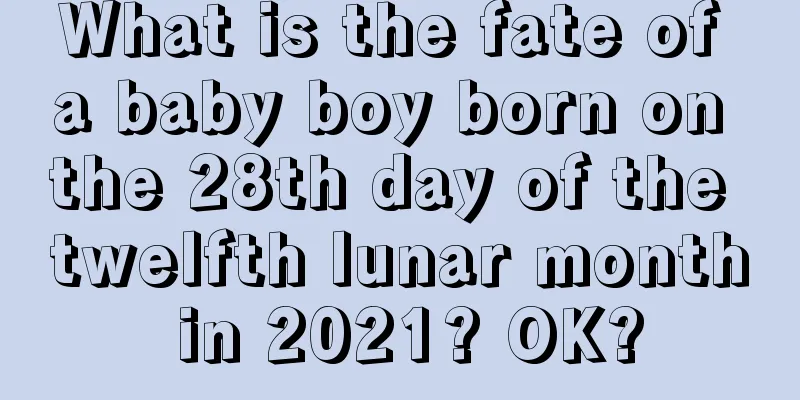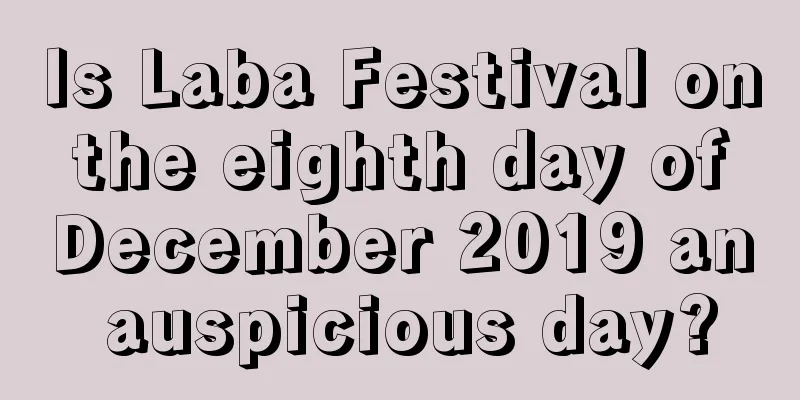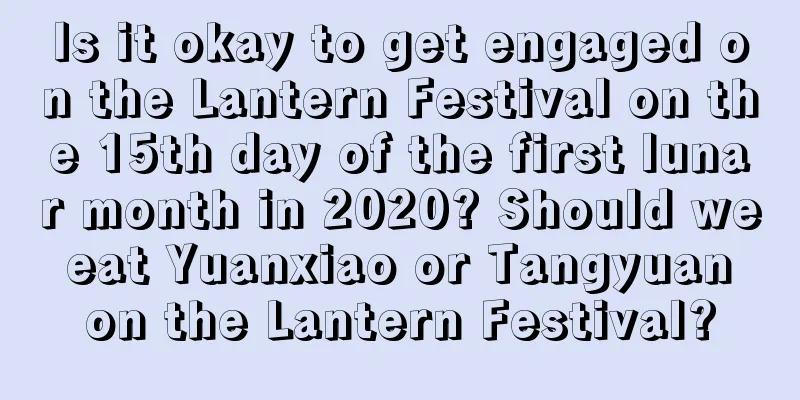Why do we hold a "seven-day memorial service" for people who have died? Stories about "seven-day memorial service"

|
Introduction: In many places in China, there is a custom of "holding a seventh day memorial ceremony" after a person dies. "Doing a seventh day memorial ceremony" is also called "fasting for seven days". It is an old funeral custom of the Han nationality and is popular all over the country. That is, after a person dies (or after the funeral), a spirit seat is set up on the "first seven days" to offer sacrifices to the wooden tablet. People cry and worship every day, and offer sacrifices in the morning and evening. Buddhist ceremonies are held every seven days, and vegetarian meals are held to offer sacrifices, and this continues until the 49th day of the "seventh seven". How did this custom come about? Next, please follow the editor to learn about the Feng Shui story of "Zuoqi"! There are many legendary stories in Mr. Shui Mo's Feng Shui stories that you have never heard of. Let us take a look at them below. Those who have passed away and those who have gone to heaven (if a person has done great good deeds in this life, he will go to heaven after death) do not have a bardo period between going to heaven and passing away, so there is no need to hold a seven-day memorial ceremony! However, most people have heavy karmic habits. If they fall into the evil paths, the three evil paths, or they can be reborn as humans in the next life, they will still be ordinary people, not rich people, but ordinary people. They will all have the bardo. The bardo usually lasts forty-nine days, which is seven sevens. In the bardo, he changes between life and death every seven days, which means that he suffers great pain every seven days! At this time, reciting scriptures, chanting Buddha's name, or performing repentance practices for him and dedicating the merit to him can alleviate his suffering. This is stated in the "Sutra of the Past Vows of Ksitigarbha Bodhisattva." So the seven-day memorial ceremony comes from the "Sutra of the Past Vows of Ksitigarbha Bodhisattva". If you read this sutra, you will understand. So people decide not to commit suicide, because suicide is extremely painful. Why? Anyone who dies by suicide will commit suicide again every seven days in his bardo body. It's not like it's over in one go, it's gone forever, it has to happen again every seven days, it's so painful! For example, if someone died by hanging, he would go to hang himself once every seven days; if someone died by taking poison, he would go to take poison once every seven days. So at this time, if his family members and relatives do good deeds for him, he can reduce his suffering, or even avoid it. If his family and relatives did not accumulate blessings for him, he would definitely not be able to avoid it. This is what the Buddha told us. Seven sevens. If you understand Buddhism, you must do all seven sevens. You cannot choose a few and not do the others. That is not allowed. Why? He suffered from changes of pain once every seven days. We understand this principle from the scriptures. Therefore, chanting Buddha's name and reciting sutras is the greatest benefit for the deceased. As for holding a seven-day memorial service, it is clearly stated in the sutra that of the seven parts of merit, we who hold the memorial service will receive six parts, while the deceased will only receive one part. Therefore, when holding a seven-day memorial service, it is best to invite seven monks. The deceased will only receive one part of the merit from the seven monks. To truly gain great benefits from performing the Seven Buddha Rituals, those who perform the rituals must do so with sincerity, and they will gain great benefits. If one recites the sutras and repents according to the rituals but with an insincere heart, he will gain very little benefit. How can you be so insincere? While reciting the sutra and making repentance, one's mind is distracted and absent-minded, and he gains very little benefit. If the deceased had a bad temper and a bad personality when he was alive, or recited the scriptures insincerely, he would cause trouble for him. Ghosts are the same as humans. If you offend some powerful ones, they will cause trouble for you and take revenge on you. Forget about someone with a gentle temperament. I won’t look for one. Therefore, everything has cause and effect! The law of cause and effect is never wrong, this is the truth. In Buddhism, it is often said that "all dharmas are empty, except cause and effect." Why is cause and effect not empty? Cause and effect are “transformed into something that is never empty”. Causes become effects, and effects become causes. Like when we plant a fruit tree, the most obvious thing for everyone is, if you plant a peach tree, the peach pit is the seed, because! When a cause is planted, it grows into a tree, and the cause becomes fruit; the fruit then becomes peaches, and inside the peaches there are peach pits. This is “transformation is not empty”; “cycle is not empty”, the cycle of cause and effect, this is to say that this is not empty; “continuity is not empty”. Therefore, it has three phenomena: transformation, continuity, and cycle. All worldly and otherworldly laws are inseparable from cause and effect. |
<<: What are the customs in Tianjin on the 27th day of the twelfth lunar month in 2017?
>>: Talk about the Feng Shui story of Deng Zufen
Recommend
Is the seventh day of the sixth lunar month in 2019 suitable for seeking offspring? When is the due date?
What date is the seventh day of the sixth lunar mo...
Can the funeral be held on the tenth day of the third lunar month in 2021? How do we choose an auspicious day for the funeral?
In March, the fallen flowers bloom again, and swal...
Is it a good day to repair the grave on the first day of the fourth lunar month in 2020? What is the best and worst time on May 23?
Introduction: Generally, it is necessary to choose...
Introduction to ancient poems describing the Dragon Boat Festival. Do you know these ancient poems?
In ancient times in our country, many poets would ...
What can’t you eat during the Mid-Autumn Festival? What foods can’t be eaten together during the 2019 Ghost Festival?
The Zhongyuan Festival originated from the early &...
Is the tenth day of the eleventh lunar month in 2018 an auspicious day? How is today's time?
Chinese people have the habit of checking the alma...
Do girls born in the twelfth month of the lunar calendar have good fortune? Girl's fate analysis
The fate of a girl is related to the time of her b...
What is the history of National Day? What benefits are there for National Day?
National Day: The birthday of the motherland, this...
Is it okay to hold a funeral the day before Xiaoxue on October 25, 2019? Will it snow in the south on Xiaoxue 2019?
Introduction: It is usually necessary to choose an...
Is it a good idea to hold the funeral on the second day of the ninth lunar month in 2018?
Is the second day of the ninth lunar month in 2018...
How about the 28th day of the eighth lunar month in 2018? Is it a good time to get a haircut?
Introduction: Getting a haircut is a common thing,...
What day is the second day of Mid-Autumn Festival? What is the second day of Mid-Autumn Festival called? What are the customs?
I believe everyone is familiar with the Mid-Autumn...
Which day is the best for moving in May of the lunar calendar in 2021? List of auspicious days for moving in May
There are some auspicious days in almost every mon...
What kind of situation will affect the feng shui of the fish tank?
When we raise fish at home, some people will pay a...
What is the lunar date of New Year’s Day 2022? How to take a holiday? Why doesn't the calendar show off work?
New Year's Day is a legal holiday, so let'...









